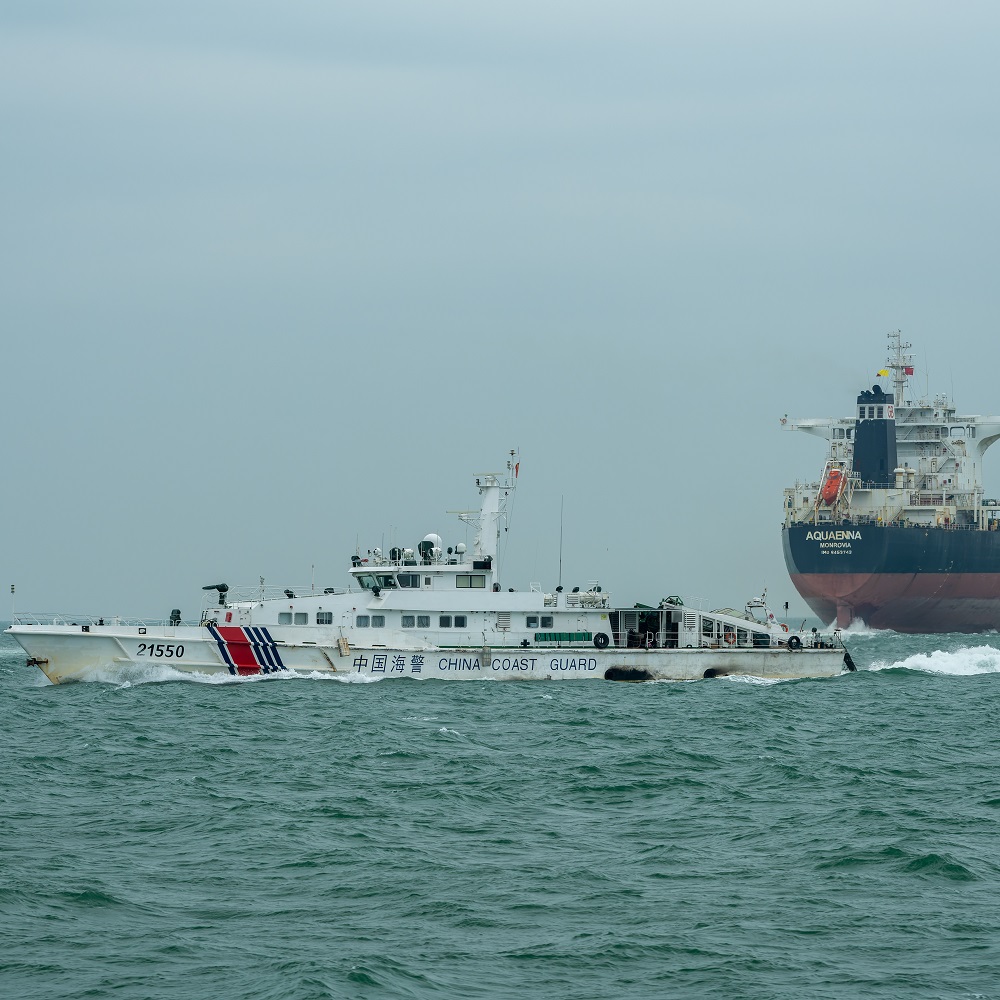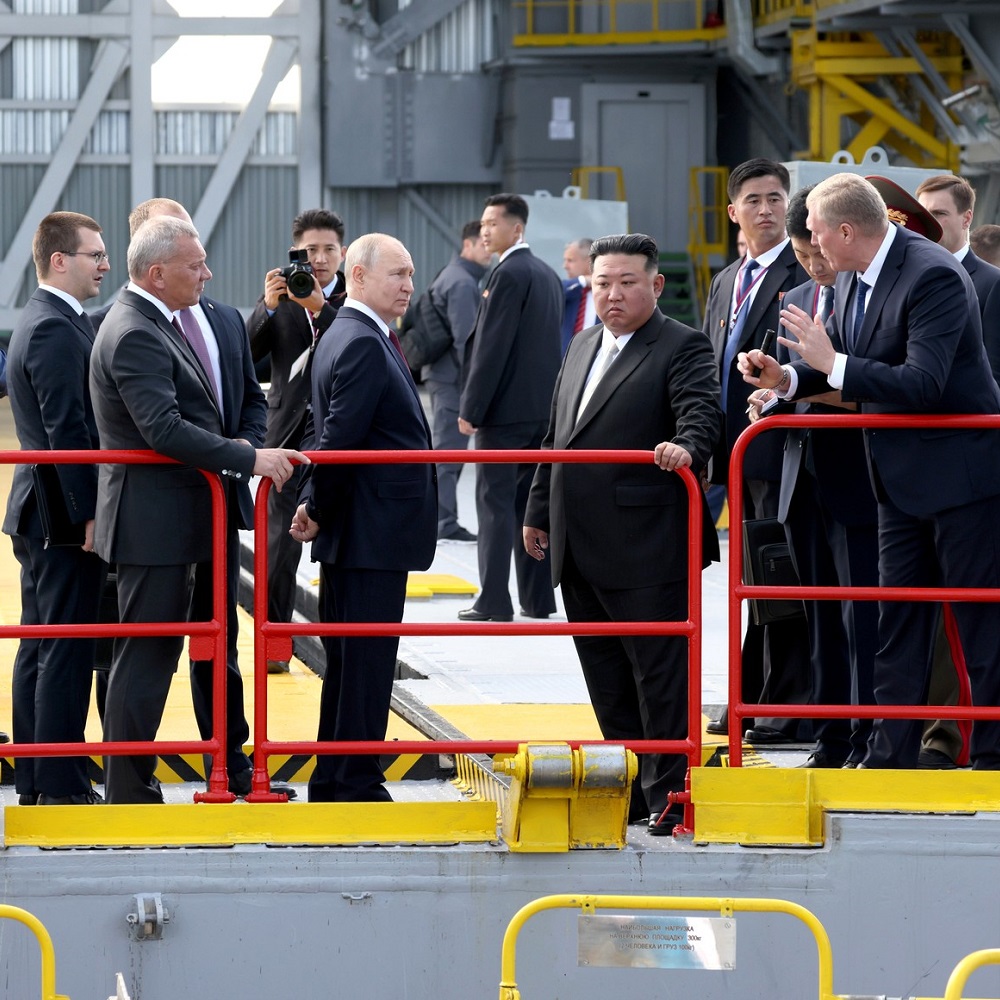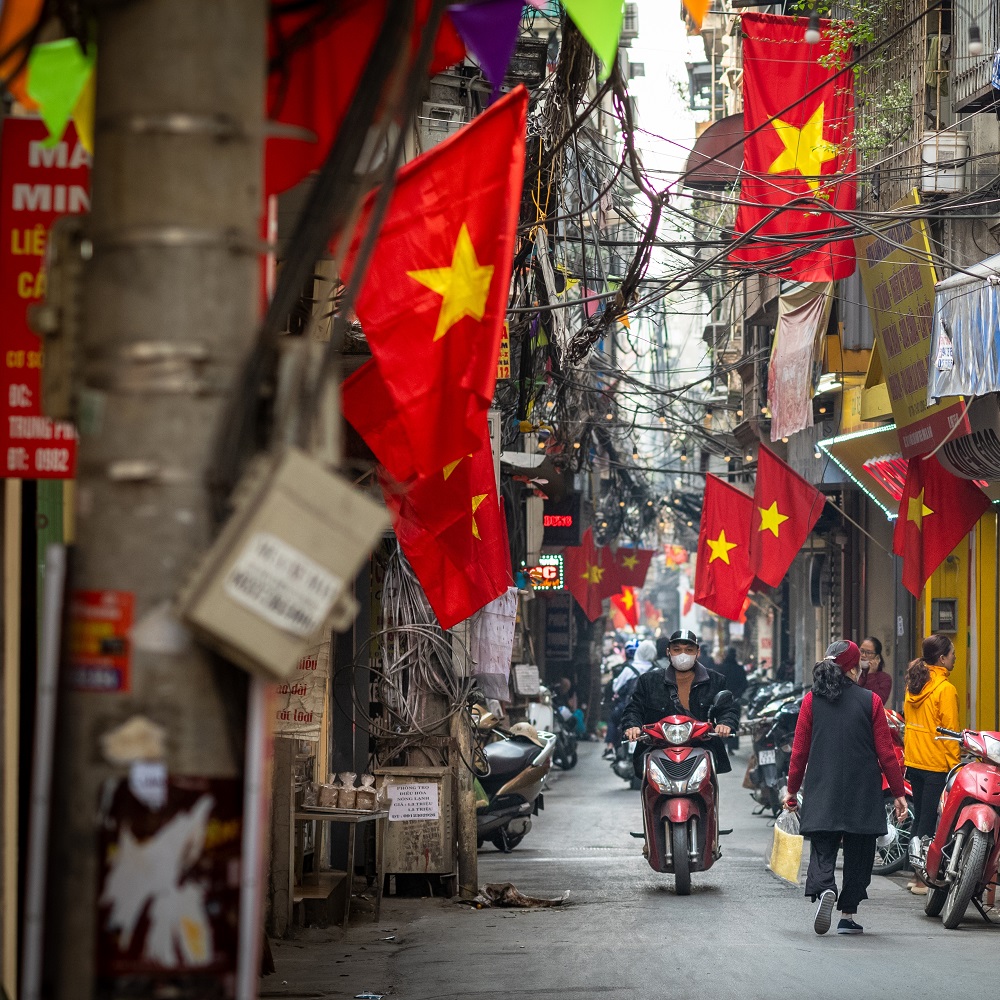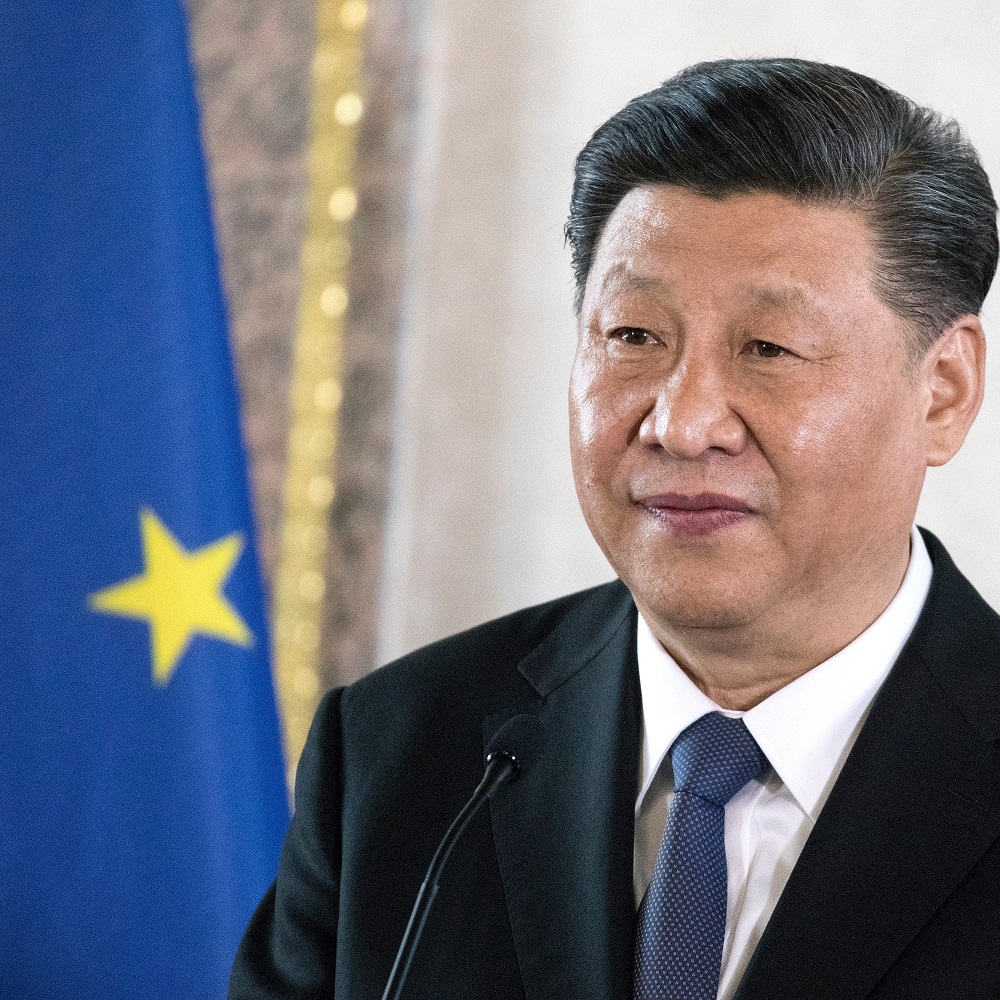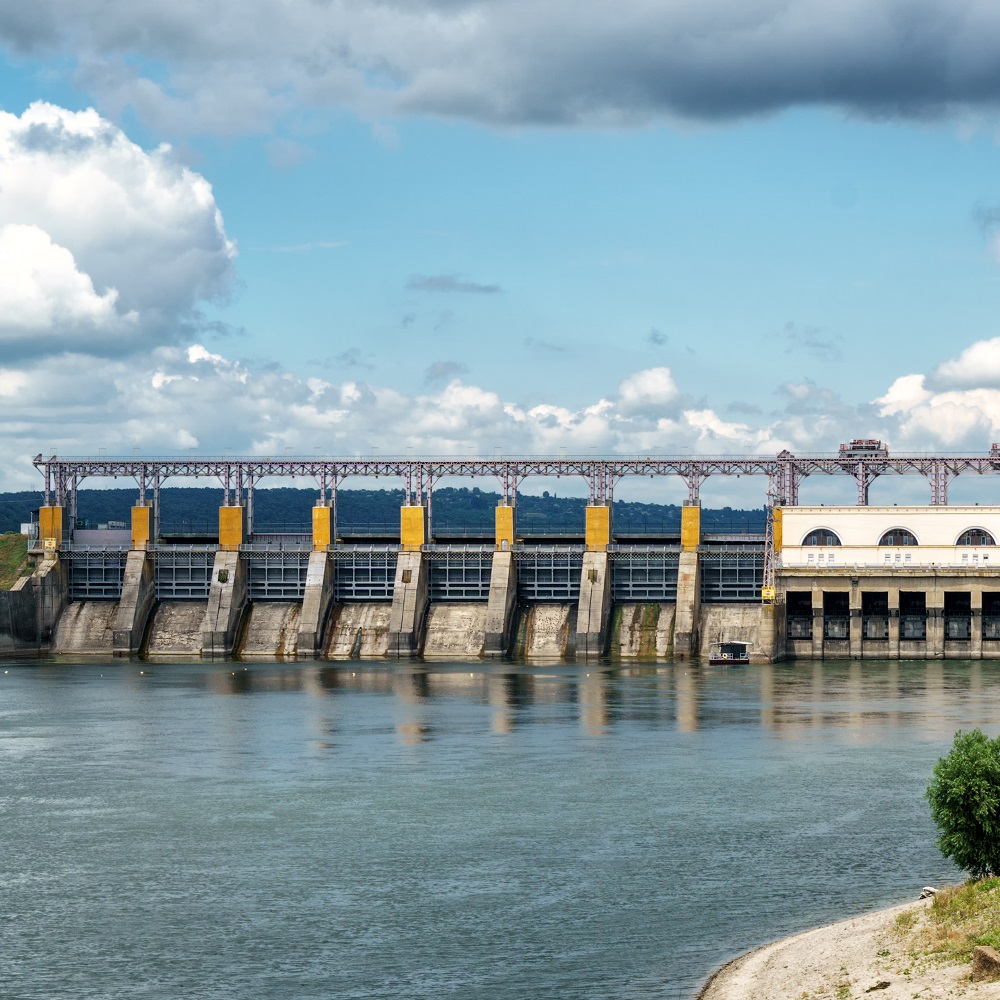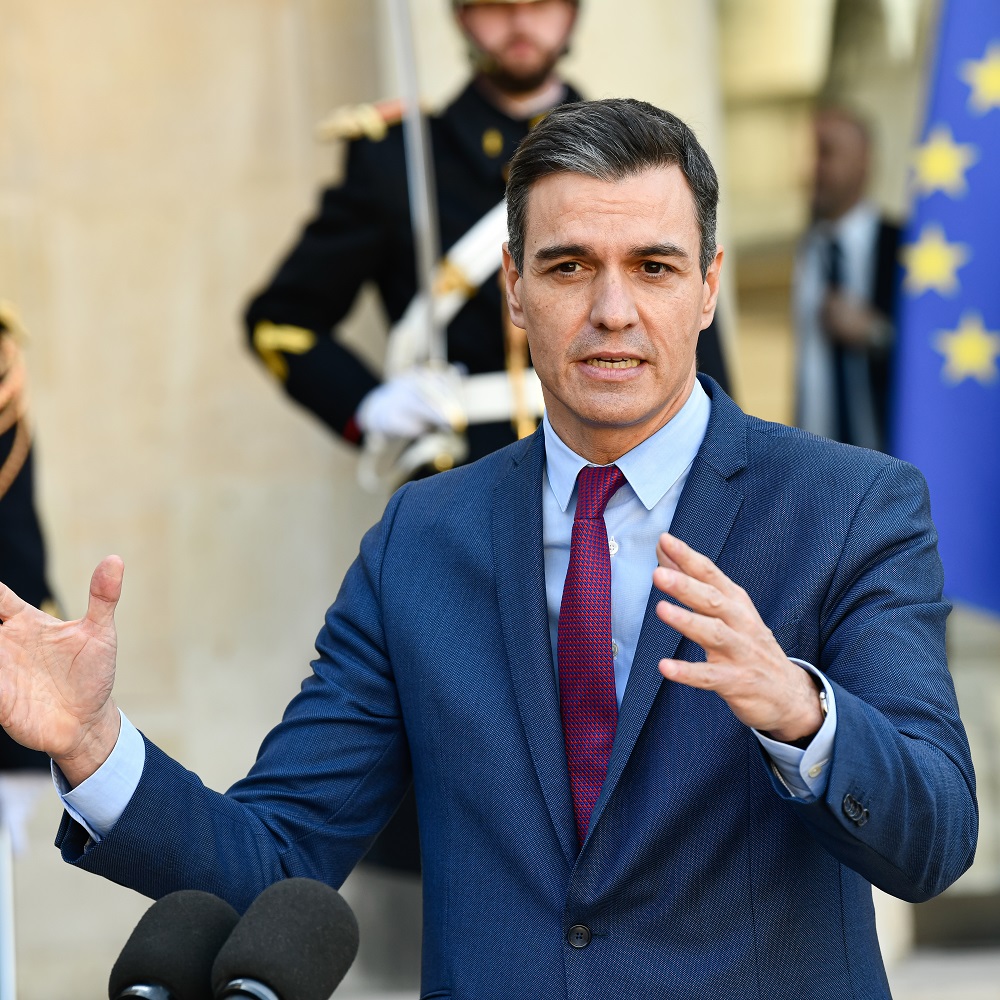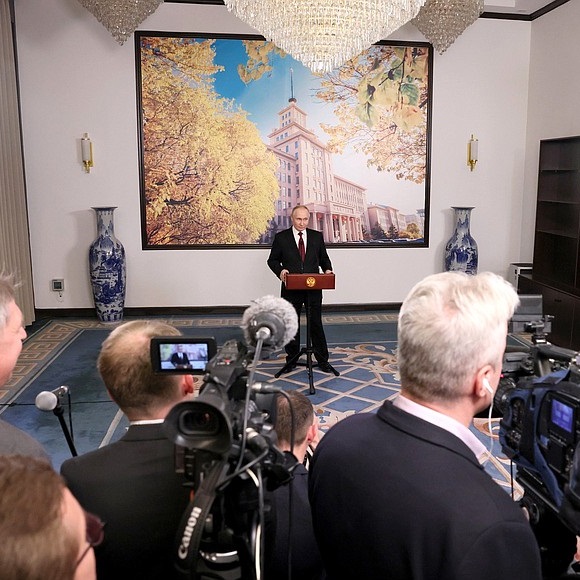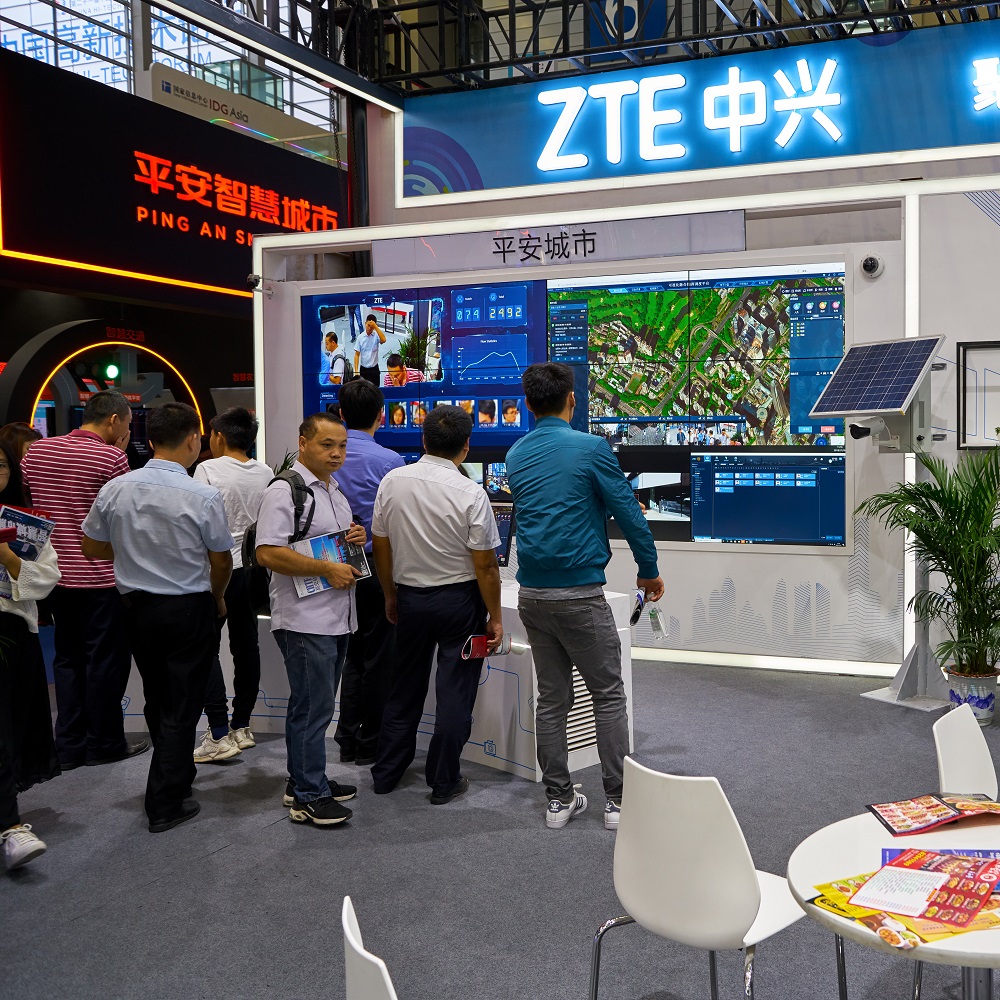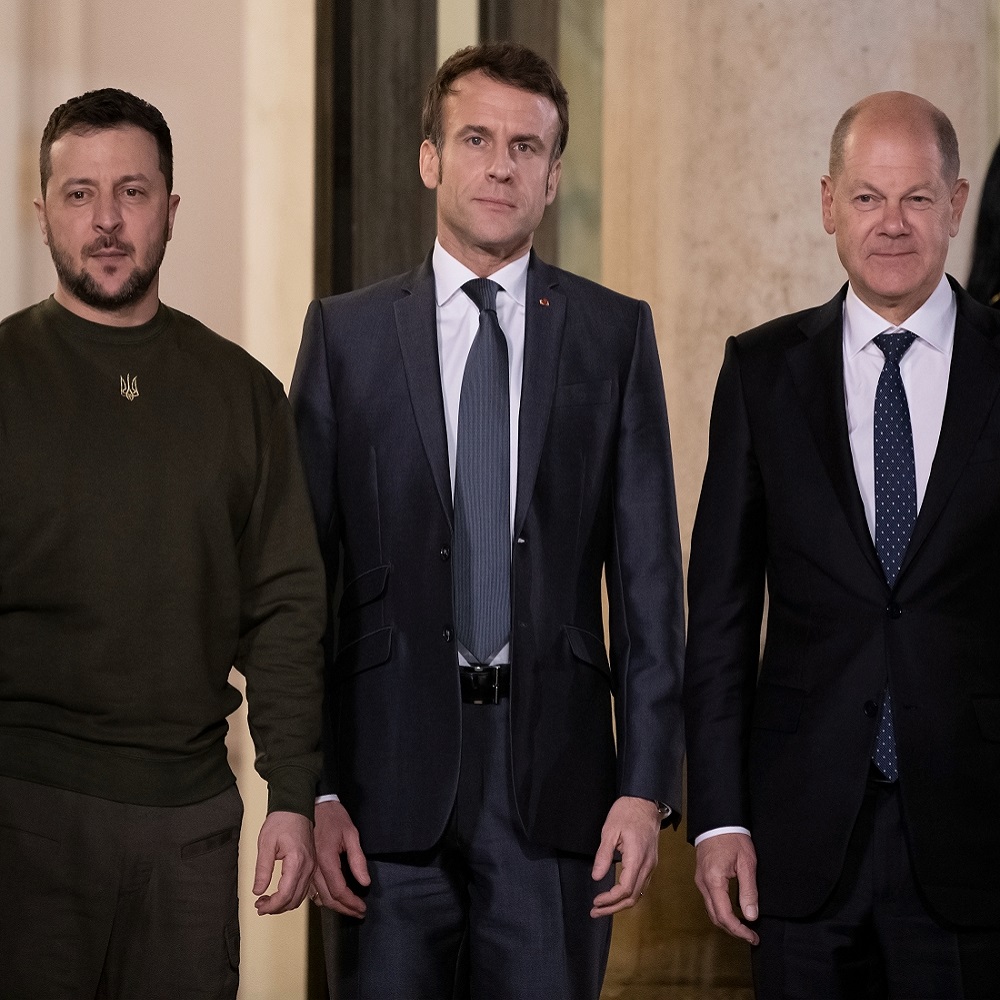Energising eastern Europe: How the EU can enhance energy sovereignty through cooperation with Ukraine and Moldova
by Szymon Kardaś
한국어로 읽기Leer en españolIn Deutsch lesen
Gap
اقرأ بالعربيةLire en françaisЧитать на русском
Summary
• Since Russia’s full-scale invasion of Ukraine, the EU has made strengthening energy sovereignty – its own and that of its eastern neighbours – a strategic priority.
• Along with Ukraine and Moldova, the EU has created an elaborate legal and institutional framework that provides a platform for energy cooperation.
• Through this framework and other measures, the EU and member states have helped significantly strengthen the energy sovereignty of Moldova and Ukraine, in particular helping them to diversify away from Russian fossil fuels and synchronising their electricity grids with that of the EU.
• But when it comes to the cleanness and efficiency of their energy, Moldova and Ukraine are still underperforming, despite their potential for green energy generation. Improving the cleanness of their energy would also help strengthen the EU’s energy sovereignty, increasing the mutual benefits of closer energy cooperation.
• Ukraine’s vast gas reserves and extensive gas infrastructure, along with its potential for green hydrogen production and the significant development of renewable energy sources in both countries offer opportunities for cooperation with the EU, which could enhance both its energy security and decarbonisation efforts.
Introduction
Since the beginning of Russia’s war on Ukraine, strengthening energy sovereignty has become one of the most strategic foreign policy goals of the European Union, its member states, and many other countries. Before the war, Russia was the EU’s largest source of imports of crude oil and petroleum products and in 2021 the state-owned energy corporation Gazprom accounted for 41 per cent of the EU’s gas imports. In the aftermath of the invasion, the EU and member states scrambled to reduce their dependency on Moscow for energy supplies, diversifying their suppliers of oil and gas. In 2023, Gazprom’s share of the EU’s gas imports fell to just 8 per cent.
But the EU also has a clear interest in strengthening the energy sovereignty of its neighbouring countries, especially of Ukraine and Moldova on its eastern border. The stable functioning of the energy systems of neighbouring countries is one of the cornerstones of their security, and therefore the stability and security of the EU’s immediate neighbourhood. The European Commission has thus identified supporting Ukraine and other countries that are directly or indirectly affected by Russian aggression through long-term international partnerships as among the most important objectives of the EU’s external energy policy.
Energy cooperation is also a powerful tool for integration. Energy sovereignty should not be equated with state energy autonomy or autarky; international cooperation within alliances or integration relationships such as the EU is an important component. Political allies can be reliable and secure suppliers of energy resources to import-dependent countries – the United States and Norway, for example, play such a role for many EU countries. The development of energy infrastructure links for gas or electricity between partner states, such as the EU and its eastern neighbours, would enable them to provide mutual support in times of crisis.
The EU’s desire to strengthen energy sovereignty throughout its neighbourhood is first and foremost related to the need to reduce dependency on Russia and aid the integration of its neighbours. But strengthening energy sovereignty will also require a reduction in fossil fuel consumption, and is therefore closely linked to achieving one of the EU’s other major strategic goals of climate neutrality by 2050. The diversification of fossil fuel supply sources, while important, is not a long-term solution to the problem of energy sovereignty. Amid the current geopolitical uncertainties and the growing threat of climate change, decision-makers in the EU and in neighbouring countries need to now consider green energy and efficient energy use for a comprehensive approach to energy sovereignty.
By strengthening its and its eastern neighbours’ renewable energy potential and optimising energy consumption, the EU can reduce the overall dependence on external suppliers of fossil fuels. The commission’s external energy policy combines these two goals, stating that the EU’s actions should be oriented towards meeting both short-term needs and long-term goals regarding the implementation of the European Green Deal.
For this reason, I propose a broader approach to assessing energy sovereignty, which goes beyond the typical prism of security of supply to encompass four elements:
• The level of dependence on energy imports, both fossil fuels and electricity;
• The cleanness of the energy sector, determined by the importance of renewable energy in a country’s energy mix and the level of decarbonisation of the energy sector;
• The level of energy efficiency;
• The energy sovereignty narrative used by the state authorities in policy documents, which reflects the strategic direction of the state’s energy sector.
This policy brief uses these criteria to analyse the progress that the EU and its eastern neighbours have made towards strengthening each other’s energy sovereignty so far, and sets out the next steps that they should take. It finds that, to date, the EU and its member states have played an important role in strengthening the energy sovereignty of its eastern neighbours by increasing their energy independence, but that Ukraine and Moldova still underperform when it comes to cleanness and efficiency, despite the direction implied by the states’ energy narratives – in part due to setbacks related to the war.
Strategic cooperation formats between the EU and its eastern neighbours
Over the last decade, the EU has developed a legal framework for cooperation with Moldova and Ukraine, which enables closer cooperation in various spheres, including energy. This approach fits into the EU’s so-called Team Europe external action policy for the two countries, which means that both EU and member state structures and European financial institutions, including the European Investment Bank (EIB) and the European Bank for Reconstruction and Development (EBRD), are involved in the process. In total, the EBRD has committed to investing $3 billion in 2022 and 2023 to address the Ukrainian economy’s challenges following Russia’s invasion. Both countries are also associated states of the EU, and their bilateral relations with the bloc, including on energy, are governed by the association agreements, which came into force in July 2016 for Moldova and in September 2017 for Ukraine. The European Council’s decision in 2023 to grant both countries EU candidate status and start accession negotiations has further strengthened the relationship.
The EU also invited Moldova and Ukraine to join the Energy Community in 2010 and 2011 respectively. The Energy Community’s main objective is to extend the principles and rules of the EU’s internal energy market to the countries of eastern Europe, the Black Sea region, and the Western Balkans, effectively integrating these countries into the EU’s energy market. Members of the Energy Community are obliged to implement EU energy regulations into their own national legal systems and to strengthen energy cooperation with EU countries.
Both Moldova and Ukraine have already adopted several important pieces of legislation on the functioning of the gas and electricity markets. Ukraine has successfully implemented regulations liberalising its energy markets, including certifying independent system operators in the gas and electricity markets, and an independent gas storage operator. Furthermore, at the beginning of 2024, the country’s certified electricity operator Ukrenergo joined the European Network of Transmission System Operators for Electricity (ENTSO-E). Meanwhile Moldova completed the certification of its electricity transmission system operator Moldelectrica as an independent system operator in July 2023 and has taken steps to certify the independent system operator of its gas market. Both Ukraine and Moldova have also adopted the EU’s Regulation on Wholesale Energy Market Integrity and Transparency, which prohibits insider trading and the abuse of market power. In December 2023, Moldova also amended the Law on Natural Gas to help strengthen security of gas supply and storage, further aligning it with the EU’s energy acquis.
Towards energy independence
The deepening of Ukraine’s and Moldova’s integration with the EU has helped to strengthen their energy sovereignty, helping them in particular to reduce their dependency on Russia. Ukraine and, to an even greater extent, Moldova are dependent on energy imports. In April 2020, Ukraine was able to meet about 65 per cent of its energy needs on its own, while Moldova could only meet about 20 per cent. Although Moldova’s situation has not changed significantly in recent years, Ukraine’s dependence on energy imports fell to 23 per cent in 2022 as a consequence of the decline in the country’s energy consumption due to the war. Gas
Both Moldova and Ukraine have significantly strengthened their energy independence in the gas sector, including through cooperation with the EU and member states. This is particularly the case for Ukraine, whose own gas production now accounts for more than 90 per cent of domestic demand. (As recently as 2010, Kyiv’s dependence on gas imports was over 70 per cent, amounting to 34 billion cubic metres (bcm), which it imported almost entirely from Russia.) According to the 2023 annual data, Ukraine’s gas consumption has fallen by 30 per cent since the start of the war and it now imports gas mainly through Slovakia, but also Hungary, Poland, and Romania (transiting through Moldova).
Ukraine’s journey towards independence from Russian gas supplies was, on the one hand, a consequence of political decisions taken by the new authorities in Kyiv, which came to power in 2014 after former president Viktor Yanukovych was overthrown and, in autumn 2015, stopped buying Russian gas. On the other hand, it was made possible by the support provided by EU member states and European financial institutions, which became particularly important following Russia’s full-scale invasion. In the summer of 2022, for example, the EBRD opened a $300m credit line to Ukraine’s national oil and gas company Naftogaz for emergency gas purchases. It also began to cooperate with the Energy Community to provide regular support to Ukraine, including an agreement in June 2023 to guarantee €600m in support for Ukrainian companies operating in the gas, electricity, and hydropower sectors.
Unlike Ukraine, Moldova does not produce gas, has no gas storage facilities, and has only trace reserves of its own gas (about 1 bcm as of 31 December 2022), making it completely dependent on gas imports. Chisinau’s success in strengthening its energy sovereignty has nonetheless been impressive: it has significantly diversified its supply sources and achieved complete independence from gas purchases from Russia in December 2022. The EU, European financial institutions, and select member states have played an important role in this regard. The EIB has been financially supporting projects in Moldova since 2008, including those to strengthen energy sovereignty, such as the construction of the Ungheni-Chisinau gas interconnector. But in view of the energy crisis occurring in Europe from 2021 onwards, the EU initiated anti-crisis formats with Moldova as well. For example, the EU-Moldova High Level Energy Dialogue was set up to provide support to Moldova to guarantee the supply of energy resources (especially natural gas) and electricity during the energy crisis, but also to implement long-term energy projects. So far, five rounds of consultations have taken place between the EU and Moldova under this format, through which the partners have discussed crisis support, energy sector reforms, and long-term projects.
In October 2021, Poland began supplying gas to Moldova, marking Moldova’s first imports of non-Russian gas in history. In addition to imports from Poland, Moldova managed to launch reverse gas supplies from Slovakia, as well as via the Trans-Balkan pipeline from Romania, and gained access to Ukrainian gas storage facilities, where it could store about 200m cubic metres (m3) of gas. Chisinau’s diversification efforts are continuing, as illustrated by its gas supply agreements with the Greek company DEPA in 2023.
Financial support from European institutions, including the EBRD, and member states has also helped to facilitate these diversification efforts by enabling Moldova to finance purchases of gas or electricity from alternative suppliers. In 2022, the EBRD offered a loan of €300m to Moldova, and in October 2023 an agreement was reached for it to provide a further €165m in gas support to the country in the form of loans, with Norway promising an additional €34m gas grant. In addition, in November 2022, the Energy Community Secretariat launched the Energy Community Rescue Scheme initiative to ensure that donors’ financial assistance for Moldova was channelled towards helping the country face the harsh winter ahead.
Meanwhile, the Energy Vulnerability Fund, which was established in 2022 by the Moldovan government with support from the EU, Slovakia, and the United Nations Development Programme, played an important role in neutralising the effects of rising gas, electricity, and heating bills in Moldova. Support for Moldova under this mechanism was provided by several European countries including the Czech Republic, Sweden, Italy, and Switzerland.
Finally, in 2022 the EU created the energy platform for member states and countries such as Moldova and Ukraine, which is supposed to combine demand, coordinate the use of infrastructure, and facilitate negotiations with international partners for joint purchases of gas and hydrogen. Through this initiative, Ukraine and Moldova have taken part in tenders organised by the European Commission and received 100 per cent and 80 per cent respectively of the volumes requested after the first round of purchases.
Oil
When it comes to oil, both Moldova and Ukraine are highly dependent on imports, but EU countries have gradually replaced Belarus and Russia as their main suppliers since February 2022, thereby helping to strengthen their energy sovereignty. Moldova is 100 per cent dependent on imports of oil and petroleum products from third countries, with Romania now mainly supplying it with oil products.
As a result of the war and Russia’s continued attacks on critical Ukrainian energy infrastructure, including storage facilities for petroleum products and oil, Ukraine has not been able to produce petroleum products on its own – its last operating refinery was closed in April 2022. These products are particularly sensitive for Ukraine, not just for civilian use, but for military needs. Despite its consumption of petrol, diesel, and liquefied petroleum gas falling by 25 per cent, 30 per cent, and 40 per cent respectively from 2021 to 2022, Ukraine has become more dependent on imports – 93 per cent dependent in 2022 compared with 77 per cent in 2021.[1] In 2021, Belarus accounted for about 43 per cent of Ukraine’s gasoline imports, and Belarus and Russia together accounted for about 62 per cent of its diesel imports.[2] In 2022, Ukraine significantly reduced imports from Belarus and Russia, and increased those from Poland, Romania, Bulgaria (these three countries covered 51 per cent of Ukraine’s diesel import needs in 2022), Turkey, Lithuania, Moldova, Greece, Hungary, and several other countries.[3] In 2023, Ukraine did not import petroleum products from either Belarus or Russia.[4] Electricity
Although Moldova and Ukraine are in completely different positions in their efforts to ensure a secure electricity supply, the synchronisation of the two countries’ power grids with the EU system in March 2022 significantly increased their energy sovereignty in this area. This was particularly important for Moldova, where 80 per cent of electricity needs are met by the Russian-owned Inter RAO gas-fired power plant located in the separatist region of Transnistria. In October 2022, following Russia’s attack on Ukraine’s energy infrastructure, Kyiv halted electricity exports to Moldova, leading to some blackouts. Electricity supplies from Transnistria were then completely terminated at the beginning of November. Moldova’s synchronisation with the EU grid allowed it to import electricity from Romania, which in November 2022, met 90 per cent of Moldova’s electricity demand. In June 2023, ENTSO-E increased the capacity of interconnectors connecting the EU with Moldova and Ukraine from 1050 to 1200 megawatts (MW). During the 2022-2023 heating season, around 900,000 households also received subsidies for their electricity bills through the Energy Vulnerability Fund. Although Moldova currently once more imports 70-80 per cent of its electricity from Transnistria, it does so mainly because it is cheaper than electricity from Romania or Ukraine. But the synchronisation of its grid ensures access to alternative sources of supply, minimising the risk of energy blackmail from Russia.
In the long term, support from European financial institutions will be important in strengthening Moldova’s security of electricity supply. From 2023 to 2028, the priority of the EBRD’s financial support to Moldova will be fostering energy resilience, including funds for the modernisation of electricity grids.
Although Ukraine is essentially self-sufficient in electricity supply, synchronisation with the EU grid has proven important for Kyiv too, enabling it to import electricity from EU countries in crisis situations related to Russian attacks. This has been especially helpful given that in March 2022 Russia captured the important Zaporizhia nuclear power plant, which was responsible for 44 per cent of Ukraine’s total generating capacity from nuclear power plants. In 2023, Ukraine also completed the modernisation of a power interconnector with Poland.
The EU Civil Protection Mechanism, established back in 2001, proved to be an important crisis mechanism in the context of meeting Ukraine’s short-term energy needs, especially for electricity. As of 31 January 2024, more than 5,900 power generators have been sent to Ukraine via the mechanism, including 2,347 from the EU’s own rescEU reserve stockpiles. In addition to generators, the EU has been delivering other vital energy supplies to Ukraine including transformers, autotransformers, high-voltage equipment, and LED light bulbs.
The EIB – which has supported various energy projects in Ukraine since 2007 – has played an important role since the outbreak of the war, funding energy grid projects and repairing the damage inflicted by Russia to energy infrastructure. In December 2023, for example, it provided €133m to enhance the reliability of hydroelectric power plants.
Within the Energy Community, the Ukraine Energy Support Fund and the Ukraine Support Task Force have proven to be extremely important in ensuring Ukraine’s energy security during the war, with the Ukraine Energy Support Fund alone providing over €400m in support by December 2023. Under the Ukraine Support Task Force, as of October 2023, 22 EU countries had made nearly 100 deliveries to Ukraine, including power transformers, cables, generators, transportation vehicles, and other equipment crucial for supporting the electricity sector. The Energy Community has also launched the Ukraine Energy Market Observatory, which will closely follow and review all developments related to the broader energy market and corporate governance in Ukraine. Finally, in March 2023, the Energy Community Secretariat signed two memorandums of understanding with the Ukrainian authorities: one on increased cooperation in rebuilding Ukraine’s energy sector and another on the coordination of activities in the area of humanitarian aid for the district heating, water supply, and buildings sector of Ukraine.
Green credentials
With the help of the EU, member states, and financial institutions, Ukraine and Moldova have been able to dramatically strengthen their energy sovereignty in terms of energy independence. However, their progress towards energy cleanness and efficiency – two other important components of energy sovereignty – has been less impressive.
Cleanness
Both countries, but especially Moldova, perform poorly when it comes to the share of renewables in their electricity generation. In 2022, renewables accounted for only 15.8 per cent of Ukraine’s electricity generation and 7.1 per cent of Moldova’s electricity – far below the EU and world average of 38.4 per cent and around 30 per cent respectively in 2022. The share of renewables in Moldova and Ukraine also includes the production of electricity from large hydroelectric power plants, whose operation is not fully carbon neutral.
However, the development of the renewable energy sources (RES) sector in Ukraine was beginning to gain momentum before the outbreak of the war. At the beginning of 2022, the total installed RES capacity (connected to the grid) reached 9.5 gigawatts (GW) – excluding 0.6GW of RES capacity located in the territories temporarily occupied by Russia before 24 February 2022. About $12 billion was invested in the Ukrainian RES sector between 2009 and 2021 from a variety of sources, including the EBRD, the Black Sea Bank for Trade and Development, and the American International Development Finance Corporation.
But, during the first six months of the war, Russia destroyed between 80 and 90 per cent of the generating capacity of wind power plants and around 30 per cent of the capacity of solar power plants in the country, as well as around half of the transmission lines and facilities for the production of electricity in Ukraine. Ongoing military activities, including Russia’s continued attacks on energy infrastructure, are significantly hampering Ukraine’s ability to rebuild these capacities. In an attempt to address this, the G7+ Coordination Group – established in November 2022 and including the Energy Community as well as the EU and its member states – has established a Clean Energy Partnership with the Ukrainian government to support the sustainable recovery and reconstruction of Ukraine, which was officially inaugurated at COP28 in December 2023. Its aim is to support the creation of a modern, secure, decentralised, and cleaner energy system in line with Net Zero in Ukraine and to better integrate the country into the EU. The parties are to support Ukraine in attracting private investors to develop projects to reduce Ukraine’s dependence on fossil fuels, in line with the EU’s energy and climate policy goals.
In Moldova, the low share of RES in the energy mix results from a historic lack of interest in projects in this sphere on the part of the authorities. Under the pro-European government led by the Party of Action and Solidarity, which came to power in 2021, this situation has begun to change. The government has expressed interest in accelerating Moldova’s energy transition through the development of renewable projects and is gearing up to initiate the inaugural renewables auctions in the country (between April and June 2024), through which it aims to acquire 105MW of wind power and 60MW of solar projects. When it comes to the levels of carbon in its electricity, Ukraine boasts much better results. In 2022 the carbon intensity of electricity generated in Ukraine was 271.4 grams of carbon dioxide-equivalents per kilowatt-hour of electricity (gCO2e per kWh), below the EU and global averages of 291.9 gCO2e per kWh and 490.1 gCO2e per kWh respectively. After two years of war, the carbon intensity in Ukraine has dropped further to 194.4 gCO2e per kWh. The large share of nuclear energy in Ukraine’s energy mix (60.5 per cent in 2023) – one of the largest shares globally – primarily accounts for the low carbon footprint of its energy sector.
Moldova’s electricity has a much higher carbon intensity, 871.7 gCO2e per kWh in 2022, well above the EU and global averages. Moreover, the energy intensity (the amount of energy required to produce one unit of GDP) in Moldova is 3.4 times higher than the average in EU countries. Buildings account for 58 per cent of the total final energy consumption in Moldova, of which non-residential buildings account for 17 per cent. This makes improving energy efficiency in this sector of crucial importance. Energy efficiency
Both countries also face challenges to improve their energy efficiency, although Ukraine is doing much better than Moldova in this field. According to Energy Community reports, Ukraine’s primary energy consumption and final energy consumption in 2020 were below the targets set for 2030. In the case of Moldova, on the other hand, the 2021 statistics show that both primary and final energy consumption were just over 10 per cent above the 2030 targets.
Ukraine’s good performance is largely a consequence of the war and the subsequent drop in electricity consumption of around one-third. Nonetheless, Ukraine is still struggling with high energy intensity in some sectors, notably related to residential buildings, 85 per cent of which date from the Soviet era. Before the invasion, the average level of energy consumption in households was two to three times higher than that in the EU. On top of this, gas plays a significant role in the heating sector, with around 80 per cent of households in Ukraine relying on heat supplies from gas-fired power stations.
While the war makes it difficult for Ukraine to implement systemic measures to improve energy efficiency, Ukrainian authorities had integrated this aim into their energy strategy even before Russia’s invasion. In 2018, they established the Energy Efficiency Fund, in close cooperation with the EU and Germany. Since 2014, the EU has also allocated grants under the European Neighbourhood Instrument to support reforms in Ukraine, including those aimed at improving energy efficiency. Ukraine has made significant progress in fulfilling its obligations under the association agreement with the EU regarding the adoption of European energy efficiency legislation. For example, it has developed and enacted a legislative framework to support energy efficiency, including to establish energy-efficient practices across various sectors and reduce energy consumption in buildings. Ukraine is also aligning with European standards by promoting “nearly zero-energy buildings” through the adoption of the Concept and National Plan, which outlines the gradual implementation of regulations over the next five years, followed by new construction requirements after 2025.
Moldova adopted an amendment to the energy efficiency law in May 2023, establishing a legal framework for comprehensive planning via the National Energy and Climate Plan. However, it is yet to implement energy efficiency measures, especially according to standards prepared by international institutions. For example, the UN Economic Commission for Europe (UNECE) has prepared a special guide for the implementation of energy efficiency measures and the valorisation of renewable energy sources for public sector buildings.
The Energy Community Secretariat has played an important role in the creation of further instruments for energy cooperation between EU member states and the EU’s neighbours which encompass energy efficiency. For instance, EU4Energy – an initiative created jointly with the Council of European Energy Regulators and the International Energy Agency and launched in 2016 – is focusing on Moldova and Ukraine, alongside Armenia, Azerbaijan, Belarus, and Georgia, in the current second phase of the programme (2021-2025). The initiative is designed to support the aspirations of focus countries to implement sustainable energy policies and foster cooperative regional development of the energy sector. The European Commission’s Covenant of Mayors for Climate and Energy, which aims to bring together European local and regional authorities to voluntarily contribute to increasing energy efficiency and the use of RES, includes many cities and municipalities from Ukraine and Moldova. The EU and member states have also provided support within the framework of the Eastern Europe Energy Efficiency and Environment Partnership fund, a programme set up on Sweden’s initiative in 2009. Of the total budget (€1,355m), €982m was allocated to 25 projects in Ukraine and €114m to seven projects in Moldova. Funds disbursed under the initiative are used, among other purposes, to improve the energy efficiency of healthcare buildings and other public facilities.
Energy narratives
The current authorities in both countries have shaped a dominant narrative around strengthening energy sovereignty. In March-April 2023, the European Council on Foreign Relations’ network of associate researchers conducted a survey in all EU member states and Ukraine and Moldova on decision-makers’ approach to energy sovereignty following the outbreak of Russia’s invasion of Ukraine. Questions included the conceptualisation of energy sovereignty, the main challenges and threats in this area, and the measures taken and planned to strengthen it. Our researchers found that the issue of energy sovereignty gained prominence in political circles and public discourse in both countries after the outbreak of the war.
The authorities of both countries are taking a comprehensive and innovative approach to energy sovereignty, viewing it not only through the prism of security of supply of raw materials, but also energy efficiency and climate goals. According to statements made by the Ukrainian government, Ukraine plans to become a leading green energy hub in Europe, integrating energy production with green technology development. Ukraine’s minister of energy has underscored the role of renewable energy in enhancing energy security, citing Ukraine’s experience during the war and its contribution to European stability through the synchronisation of power systems. Although the Moldovan authorities have placed special emphasis on the need to find alternative sources of supply due to their longstanding heavy dependence on energy resources from Russia, in the long term they also see energy transition issues as an important component of strengthening energy sovereignty. The government plans to significantly increase the pace of RES projects, aiming to increase their share to 30 per cent of electricity consumption in Moldova by 2030.
The elites of both countries also seem to see cooperation with third countries, including the EU and member states, as an important means of strengthening energy sovereignty, not just responding to crisis situations. This is evident in their long-term plans to cooperate with the EU and member states on further projects to strengthen their energy sovereignty. (This applies in particular to the expansion of infrastructure connections.) Moldova is currently focusing primarily on the construction of a high-voltage line from Vulcanesti to Chisinau. This connection is expected to allow the import of electricity from Romania to Moldova on the right bank of the river Dniester within the next few years. (The completion of the line is scheduled for 2025.) Moldova is also interested in the development of joint power generation projects with Romania and in increasing the capacity of the Ungheni-Chisinau gas interconnector. Ukraine is focused on establishing a hydrogen corridor connecting it with Slovakia, the Czech Republic, Austria, and Germany. The corridor would enhance Ukraine’s energy security and integrate it into the European energy network, as well as stimulate the growth of Ukraine’s hydrogen industry and enable Ukrainian-produced hydrogen to seamlessly enter the European energy market. Furthermore, in 2024 both countries (along with Slovakia) joined the Vertical Corridor European gas transportation scheme, which brings together the gas transmission system operators of Greece, Bulgaria, Hungary, and Romania, and aims to enhance energy security and diversification by upgrading their networks to facilitate gas transport from south to north and vice versa.
The mutual benefits of cooperation
So far, the eastern neighbourhood countries have mainly benefited from the EU’s and member states’ actions in the context of strengthening their own energy sovereignty. However, they both – and especially Ukraine – have the potential to help strengthen the energy sovereignty of the EU and its member states, thanks to their raw materials, RES development, and infrastructure.
Ukraine has great potential in the gas sector. Firstly, Ukraine is home to some of the largest proven natural gas reserves in Europe (after Norway), estimated at up to 1.1 trillion m3 in December 2020 (within the internationally recognised borders of Ukraine, that is, including Crimea and other areas occupied by Russia). Ukraine’s gas production is also the second-largest in Europe after Norway and, despite the war, remains at a relatively high level (18.5 bcm in 2022 and 18.7 bcm in 2023).
Secondly, Ukraine hosts gas infrastructure that could be useful for the EU as it diversifies its sources of supply. Ukraine’s extensive gas network, which has already enabled the transit of Russian gas for European consumers, could transport gas from the Black Sea or Caspian region via the Trans-Balkan pipeline. This would especially be the case after the construction of a liquefied natural gas (LNG) terminal on Ukraine’s Black Sea coast – which has been under consideration for over a decade. Ukraine could also help Europe to store gas – the country has the largest gas storage system (30 bcm) in Europe and the third-largest by capacity in the world – behind only the US and Russia. This capacity not only ensures Ukraine’s energy security but could also potentially be used by European customers. Some EU companies are already doing this – at the beginning of 2024, around 2 bcm of gas in Ukrainian storage belonged to EU companies, but the potential for exploitation is much greater.
Cooperation with Ukraine on hydrogen could further strengthen the EU’s energy sovereignty. According to Ukrainian researchers, with the appropriate development of wind power, Ukraine could produce up to 19.5m tonnes of green hydrogen per year, which would be twice as much as the EU’s annual production plans by 2030. The EU already considers Ukraine one of the three main potential green hydrogen import corridors (along with the North Sea region and the Mediterranean Sea), and in February 2023 signed a memorandum of understanding with Ukraine on a strategic partnership on biomethane, hydrogen, and other synthetic gases. Hydrogen projects that meet the EU’s safety standards can obtain the status of projects of mutual interest under the EU’s Trans-European Networks for Energy Regulation framework. The European Commission’s first list of projects of mutual interest published in November 2023 includes a generic corridor project aiming to transmit hydrogen from Ukraine to Slovakia, the Czech Republic, Austria, and Germany.
Both countries, and especially Ukraine, also have high potential for RES development, which could allow the production of clean energy not only for domestic consumption, but in the case of Ukraine also for export to the EU.
Theoretically, Ukraine has the greatest RES potential among south-east European countries, although estimates vary. The Ukrainian government assesses the potential for wind energy development in Ukraine off the Black Sea and the Sea of Azov coasts to be 140GW. Ukrainian scholars, meanwhile, calculate that renewable energy sources in Ukraine could provide up to 874GW in total, including solar (83GW), onshore wind (438GW), and offshore wind (250GW). At a conference on the reconstruction of Ukraine organised in June 2023 in London, the Ukrainian ministry for energy presented plans for investments in the energy sector, showing that by 2050 Ukraine wants to have 230GW of solar and wind generation capacity, 38GW of energy storage capacity, and 69GW of electrolyser capacity to produce green hydrogen. Regardless of which of the above estimates is more realistic, it is clear that Ukraine has the ability to produce large amounts of clean energy. According to the UNECE, bioenergy, hydro, solar, and wind generation could account for almost 80 per cent of Ukraine’s total energy generation by 2050.
Moldova also has some potential for the development of RES projects, although significantly less than Ukraine. According to a 2017 report from the International Renewable Energy Agency, Moldova could expand its wind power to 21GW and total RES generation capacity to 27GW. From the perspective of the EU, while Moldova will not become a source of clean energy imports like Ukraine, the development of RES projects in Moldova would nonetheless be beneficial, reducing Moldova’s consumption of fossil fuels and thus also relieving the burden on the EU and member states of providing support to maintain Moldova’s gas supply during crises.
Ukraine could also develop biomethane projects. According to the Ukrainian National Committee for Energy Regulation, the country could produce 22 bcm of biomethane per year, some of which could be exported to the EU. Indeed, Ukraine already has the necessary resources and infrastructure, including adequate transmission networks that would not require additional upgrades to transmit biomethane. Ukraine also has large feedstock resources and large areas of arable land to develop the potential for agricultural biomethane production. The EU plans to produce 35 bcm of biomethane per year by 2030 and it is estimated that Ukraine could meet up to 20 per cent of this demand.
The EU could also benefit from access to Ukraine’s critical raw materials (CRMs), which are important for the EU’s own energy transition. Ukraine holds resources of most of the raw materials on the EU’s latest list of CRMs, including some that the EU recognises as CRMs of strategic importance. For example, Ukraine has the largest reserves of lithium in Europe, used, amongst other things in the production of batteries for electric cars. In 2021, Ukraine also accounted for around 7 per cent of global titanium production and was the world’s seventh-largest exporter of titanium ore. Titanium dioxide is a valuable chemical that can help to improve the efficiency of batteries by extending both their energy-storing capacity and their lifetime, and – alongside lithium – is one of the CRMs that the EU considers to be strategic. Moreover, Ukraine has some of Europe’s largest reserves of graphite, which is used in energy storage technologies like lithium-ion batteries, as well as deposits of nickel and cobalt, which are important in battery production.
Its significant potential for green energy production and its status as the country with the largest nuclear generating capacity in Europe mean that Ukraine could also be a source of low-carbon electricity imports for EU member states. Over the last three decades, Ukraine has exported electricity, and continued to export small amounts to Moldova, Poland, Slovakia, Romania, and Hungary even in the first year of the war. Due to Russian attacks on Ukraine’s energy infrastructure, Kyiv was forced to suspend electricity exports in October 2022, but resumed exports of small amounts of electricity to Moldova and EU countries in April 2023. In the long term, especially when the war ends, the EU expects to be able to import clean electricity from Ukraine as part of its REPowerEU initiative.
Finally, Ukraine can provide important insights into protecting energy infrastructure across Europe based on its experiences of Russian attacks, which could further strengthen the EU’s energy sovereignty. The security of the EU’s energy infrastructure has become an area of concern, particularly after the damage to the Nord Stream 1 and 2 pipelines, the Baltic interconnector, and the cyber-attacks on Danish energy infrastructure.
Hurdles ahead
Several factors clearly favour closer energy cooperation between the EU and member states and their eastern neighbours, which would strengthen the energy sovereignty of all parties involved.
Both the societies and the current authorities in Moldova and Ukraine are unequivocally in favour of the closest possible integration into Western structures, including the EU. In Ukraine, this has been the case since the victory of the “Revolution of Dignity” against the government’s growing ties to Russia and the ensuing fall of the Yanukovych administration in 2014, while Moldova began to take an unequivocally pro-European course in 2021. Russia’s ongoing war in Ukraine and aggressive policy towards Moldova have further embedded this trend and mean it will likely continue in the long term.
The EU has also re-evaluated its strategic thinking, prompting a new focus on its own energy sovereignty and that of its eastern neighbourhood. After Russia’s invasion of Ukraine, the EU worked rapidly to reduce its dependency on Russian energy supplies and to help its eastern neighbours do the same.
However, the ongoing war in Ukraine is hampering the intensification of long-term energy cooperation. In the case of Ukraine, the key issue is the scale of the war damage and the estimated amount of money needed to rebuild Ukraine. The World Bank estimates the total cost of reconstruction at almost $486 billion, which is more than two times the size of Ukraine’s pre-war economy. According to the UN, rebuilding Ukraine’s energy sector alone, which has been seriously damaged by constant shelling, will require an outlay of approximately $47 billion. The EU has announced an additional €50 billion in support between 2024 and 2027 through a new financing instrument, the Ukraine Facility. However, these funds relate to investments in all spheres of state functioning, and it is unclear how much, if any, of this sum will be allocated to energy.
Considering Kyiv’s plans regarding investments in green energy (RES and hydrogen) and the development of other sectors, including nuclear and gas, the Ukrainian authorities estimate that the country’s investment needs will reach $400 billion by 2050. Yet Moldova and Ukraine have relatively weak investment climates. Before the war, regulatory instability in Ukraine, including changes in taxation rules for the gas extraction sector, among other factors, made it difficult to attract investors. Moldova also finds it difficult to attract investment, particularly from private actors. And, although positive developments are taking place in Ukraine even during the war (for example, a law adopted in Ukraine introducing favourable conditions for investment in the biogas and biomethane sector, including exemption from income tax for five years, land tax, and VAT and customs duties when importing new equipment and components), it remains unclear how easy it will be to introduce and apply legal regulations after the war. Progress in the implementation of energy and climate policy will also be one of the fundamental challenges in the context of Ukraine’s integration with the EU.
In addition to this, specific sectors face further challenges. Despite having great potential for hydrogen production, for example, Ukraine so far has neither a hydrogen strategy, nor a legal framework for the development of hydrogen projects, nor adequate infrastructure.
The next steps
To achieve the greatest possible synergy in the efforts of the EU and its eastern neighbours to mutually reinforce energy sovereignty, both sides will need to continue taking strategic steps in the coming years.
For eastern neighbours
Adopt a progressive approach to energy sovereignty
Ukraine and Moldova need to translate their narratives about energy sovereignty into a determination to implement them in reality. The eastern neighbourhood countries should permanently change their approach to energy sovereignty and think of it not only in terms of security of supply – energy independence from Russia and diversification of supply sources – but also in terms of clean energy and energy efficiency. This applies especially to Moldova, which should aim to finally and permanently sever its energy relations with Russia not only in the electricity sector, but also in the gas sector, in particular by removing Gazprom from the ownership structure of its largest gas company Moldovagaz (in which Gazprom still holds 51 per cent of the shares).
The EU and its eastern neighbours should make the improvement of energy efficiency one of their common strategic goals. Moldova and Ukraine should use the funds made available through the EIB and EBRD to implement steps to improve energy efficiency. In particular, they should exploit and expand the opportunities for projects under the Eastern Europe Energy Efficiency and Environment Partnership. They should also strengthen bilateral cooperation with selected EU member states that have declared their willingness to share their experience in this field. On a bilateral level, France, Germany, Poland, and Sweden are implementing or planning cooperation with their eastern neighbours to improve energy efficiency.
Meet Energy Community regulations
Ukraine and Moldova should continue to implement reforms in the energy sector, including those stemming from their membership in the Energy Community or related to the process of deepening their integration with the EU. Following the end of the war in Ukraine, it will be important that the two countries take measures against the monopolisation of markets by fully liberalising the electricity and gas markets, ensuring OECD-appropriate governance standards for state-owned energy companies, and making further progress in tariff reforms and subsidy provision by phasing out public service obligations and replacing them with social support for vulnerable energy consumers. These measures will serve to deepen the integration of Moldova and Ukraine with the EU and, consequently, help to increase the resilience of their energy systems.
Make infrastructure flexible
Both Moldova and Ukraine should prepare for new uses of their transmission infrastructure under the new geopolitical conditions. This is particularly important for Ukraine, which for a decade has acted as a transit country for EU countries’ gas and oil imports from Russia. In December 2024, the transit agreements between Russia and Ukraine will expire, and Ukraine will need to find a new use for its significant gas pipeline network in order to maintain it. The Ukrainian gas pipeline network could be used to export Ukraine’s surplus gas production or to transit gas from other sources. For example, Azerbaijani gas exported via the Trans-Balkan pipeline could travel via Moldova and Ukraine to Slovakia or other EU countries. The Ukrainian government was already considering using it to transport imported gas via a potential LNG terminal on the Ukrainian Black Sea coast before the war.
Ukraine and Moldova also need to modernise and expand their electricity grids. In the case of Ukraine, this is necessary due to the continuing destruction associated with Russia’s aggression. However, Moldova also needs grid investments, especially if it is to expand its RES potential in the future. Indeed, the expansion of RES potential requires a sufficiently developed grid capable of absorbing electricity produced by wind or photovoltaic installations into the system.
Make use of international cooperation formats
Given the multiplicity of cooperation formats in which the eastern neighbourhood countries are involved, it is important to build synergies between them. In addition to the formats already in use in relations with the EU, Kyiv and Chisinau should make use of other, supra-regional cooperation formats that have emerged in central and eastern Europe in the last decade, within which some countries have placed a very strong emphasis on strengthening sovereignty. An example of this is the Three Seas Initiative, a project initiated in 2015 by the presidents of Poland and Croatia that brings together 13 central European countries with the strategic aim of preserving and strengthening the unity of the EU and the Euro-Atlantic space through three pillars: transport, energy, and digital. Poland and Romania have already declared their interest and political will to cooperate with countries such as Moldova and Ukraine under the initiative. For this purpose, Ukraine and Moldova could also make use of the European Political Community, to which 47 European countries belong, including non-EU countries such as the United Kingdom and Turkey.
For the EU
Ensure comprehensive support to Moldova and Ukraine prior to accession
In the dynamic geopolitical situation related to Russia’s aggression against Ukraine, the EU should be determined not only to pursue the EU integration process of Moldova and Ukraine consistently, but also to strengthen its own capacities to respond to Russia’s attempts to destabilise these eastern neighbours. Only the accession of Ukraine and Moldova to the EU can create a sustainable foundation for strengthening cooperation and using the full potential of all parties to strengthen energy sovereignty. The EU therefore needs to demonstrate its determination to meet this political commitment to Moldova and Ukraine. It should use all existing multilateral formats available to it to tighten political and economic (including energy) cooperation with its eastern neighbours.
Individual member states should also look to strengthen their bilateral cooperation with their eastern neighbours. Poland can play a special role in this respect, above all because it is Ukraine’s largest neighbour and is interested in participating in the reconstruction of Ukraine and particularly committed to supporting Moldova’s reform. The new pro-European government formed in December 2023 could also build a coalition for energy cooperation with its eastern neighbours together with Germany or perhaps more broadly with Germany and France as part of the recently reactivated Weimer Triangle.
Initiate joint energy projects
The EU should plan further joint energy projects with its eastern neighbours. It is a major weakness that, apart from the hydrogen corridor with Ukraine, the list of projects of common and mutual interest published by the EU in November 2023 does not include others concerning the enhancement of infrastructure links between the EU and Ukraine and Moldova. These are notably lacking in the electricity sector. The implementation of these projects will be important for electricity trade between the EU and neighbouring countries, which could strengthen the energy sovereignty of both the EU and its eastern neighbours. At the same time, it is in the interest of the EU and member states that progressive integration, for example in the sphere of electricity markets, is carried out under fair competition conditions between EU players and companies from Ukraine and Moldova.
Contribute to security of energy supply
Although the EU’s own raw material potential is limited, some countries have resources that could be used to meet part of the needs of the eastern neighbourhood countries. Romania, which has among the most energy resources in Europe, could play a particularly important role in this context. Its gas resources on the Black Sea shelf are estimated at 80-200 billion m3, which would allow it to secure its own needs for about 20 years or, in the medium term, act as an alternative to Russian supplies to other countries in the region, such as Moldova. When it comes to electricity production, Romania boasts a diversified energy mix and a well-developed network of interconnections with neighbouring countries that can operate in two directions (for import and export purposes). Due to its location, Romania could also play the role of a transit country for the transmission of energy resources (for example, gas via the Trans-Balkan gas pipeline) or electricity from third countries.
EU member states should support Ukraine in continuing to diversify its nuclear fuel supply sources. Those that have nuclear power in their own energy mixes, including Bulgaria, France, Romania, Slovakia, and Sweden, can provide logistical support for the transport of nuclear fuel from alternative sources, and be partners for enhancing cooperation in the nuclear sphere after the end of the war. The so-called nuclear alliance that has emerged in the EU under the informal leadership of France could be useful in this regard, supporting partnerships with Ukraine to implement joint nuclear projects.
Improve eastern neighbours’ energy efficiency
In its external energy policy strategy, the EU calls for energy saving and energy efficiency to become priorities on a global scale. It should therefore support neighbouring countries to improve energy efficiency. As postulated, among others, by participants in the Green Deal Ukraine project, the EU and its member states should help their eastern neighbours to develop robust standards for energy efficiency and building materials for both new and renovated buildings, spanning residential and non-residential sectors and the entire construction process. These standards should include monitoring energy efficiency for components and the building process to align with evolving EU efficiency regulations, promoting sustainable practices and long-term decarbonisation goals.
Increase investments in the region
Energy should become one of the key areas of cooperation to strengthen Moldova’s and Ukraine’s sovereignty and thus their resistance to aggressive, destabilising actions by Russia. Although the EU has so far provided significant financial assistance to Ukraine and Moldova, both directly and in cooperation with European financial institutions, the scale of the needs (especially in Ukraine) requires further efforts in this area. Investment either directly by the EU or by companies from EU countries in Ukraine’s RES sector, the hydrogen corridor, or Ukraine’s gas infrastructure could strengthen EU energy sovereignty by ensuring a secure supply of clean electricity or gas supplies, which will still be needed by EU countries over at least the next decade.
To this end, the EU should make use of and provide organisational and expert support for recently created instruments such as AidEnergy – an electronic platform established in March 2023, whereby the EBRD in partnership with other donors and international financial institutions and the Ukrainian Ministry of Energy create a centralised list of energy sector needs. The platform is intended not only to identify the current needs of the Ukrainian energy sector, but also more long-term needs. Considering the long-term investment needs of Ukraine’s energy sector, the EU could also provide support through financial guarantees for the most strategic projects.
EU member states and institutions should also continue efforts to confiscate frozen Russian assets, which could be used for the reconstruction of Ukraine, including investments in the energy sector. The law adopted by the EU in February 2024 to set aside windfall profits made on frozen Russian central bank assets is a move in a right direction in this regard.
Acknowledgments
The author would like to thank experts and people working in the energy sector in institutions and companies in Poland, but also in Ukraine, Slovakia, and Germany, for discussions on the topic covered in this policy brief. Special thanks are also due to those who provided comments on the first version of the text, in particular Susi Dennison. The author would particularly like to thank Flora Bell for her pleasant and fruitful collaboration in editing the final version of the text, especially for her very valuable suggestions, questions, and comments. Thanks are also due to Nastassia Zenovich for the beautiful graphics included in the text.
References
[1] https://ecfr.eu/publication/energising-eastern-europe-how-the-eu-can-enhance-energy-sovereignty-through-cooperation-with-ukraine-and-moldova/#_ftnref1
Argus Eurasia Energy (https://www.argusmedia.com/en), weekly report, by subscription, 23 February 2023.
[2] https://ecfr.eu/publication/energising-eastern-europe-how-the-eu-can-enhance-energy-sovereignty-through-cooperation-with-ukraine-and-moldova/#_ftnref2 Ibid.
[3] https://ecfr.eu/publication/energising-eastern-europe-how-the-eu-can-enhance-energy-sovereignty-through-cooperation-with-ukraine-and-moldova/#_ftnref3 Ibid.
[4] https://ecfr.eu/publication/energising-eastern-europe-how-the-eu-can-enhance-energy-sovereignty-through-cooperation-with-ukraine-and-moldova/#_ftnref4 Argus Eurasia Energy (https://www.argusmedia.com/en), weekly report, by subscription, 22 January 2024.
This policy brief was first published on 11 March by the European Council on Foreign Relations (ECFR)
